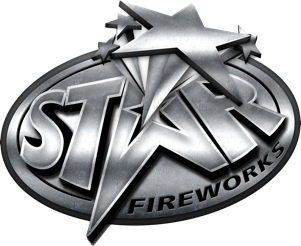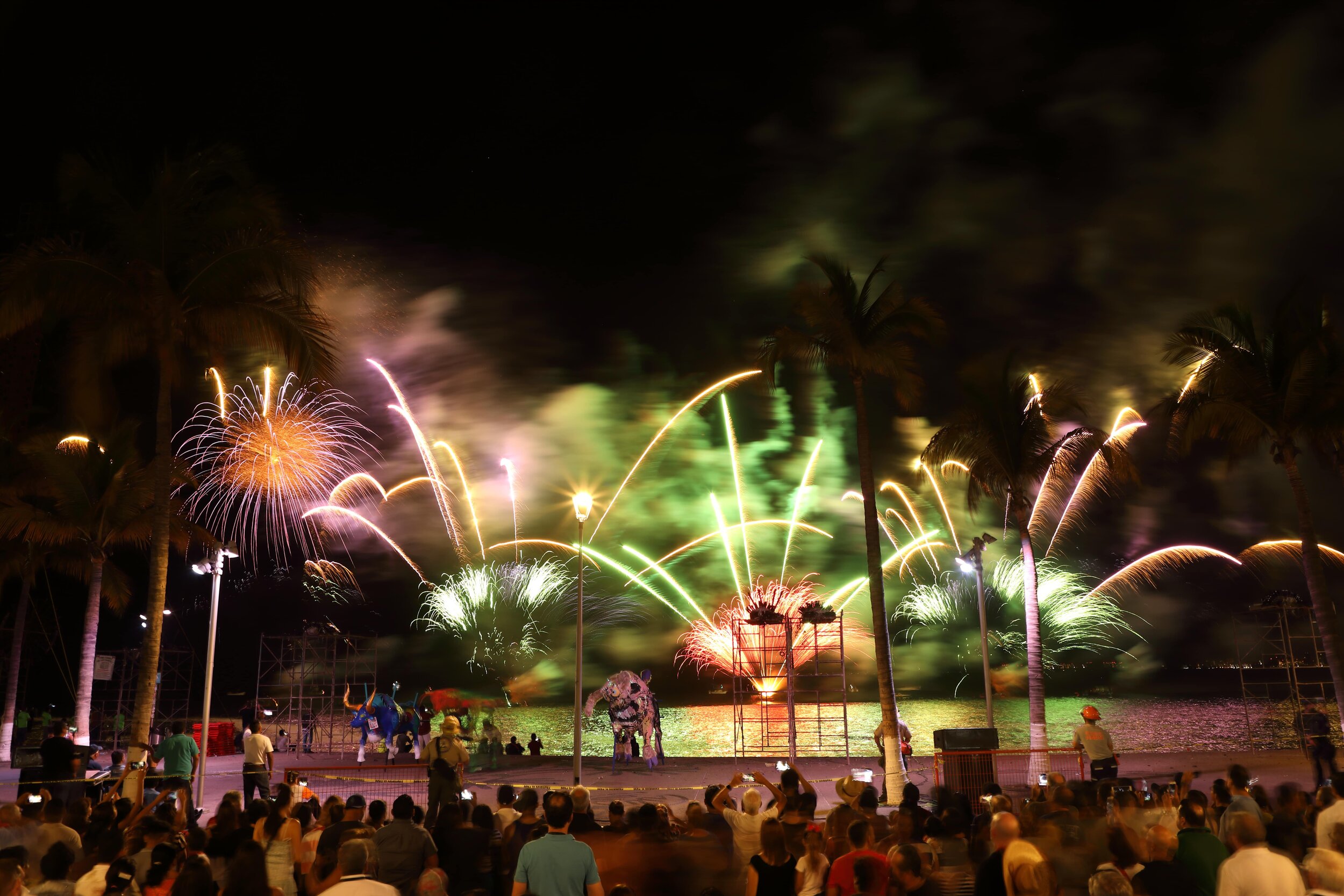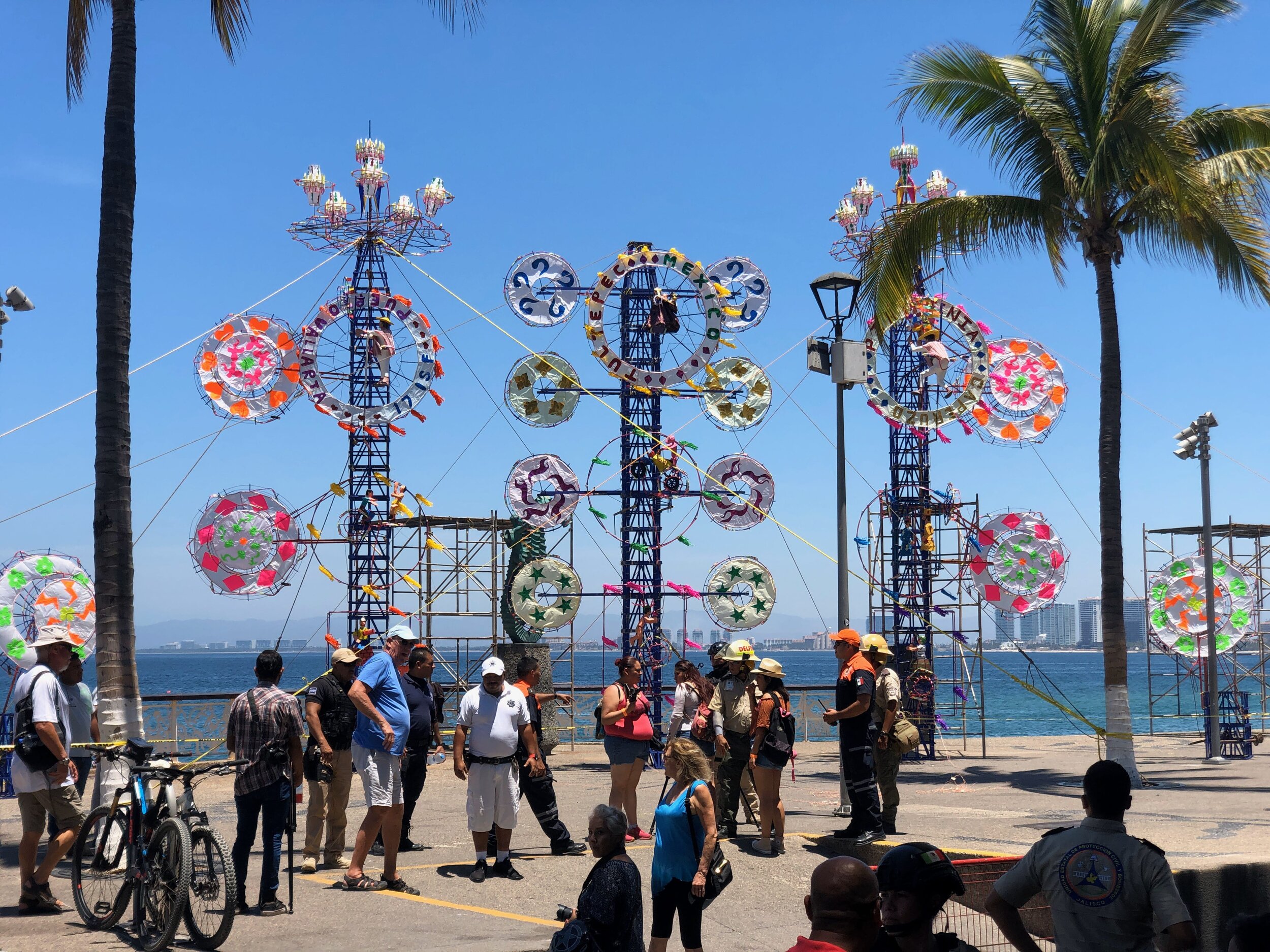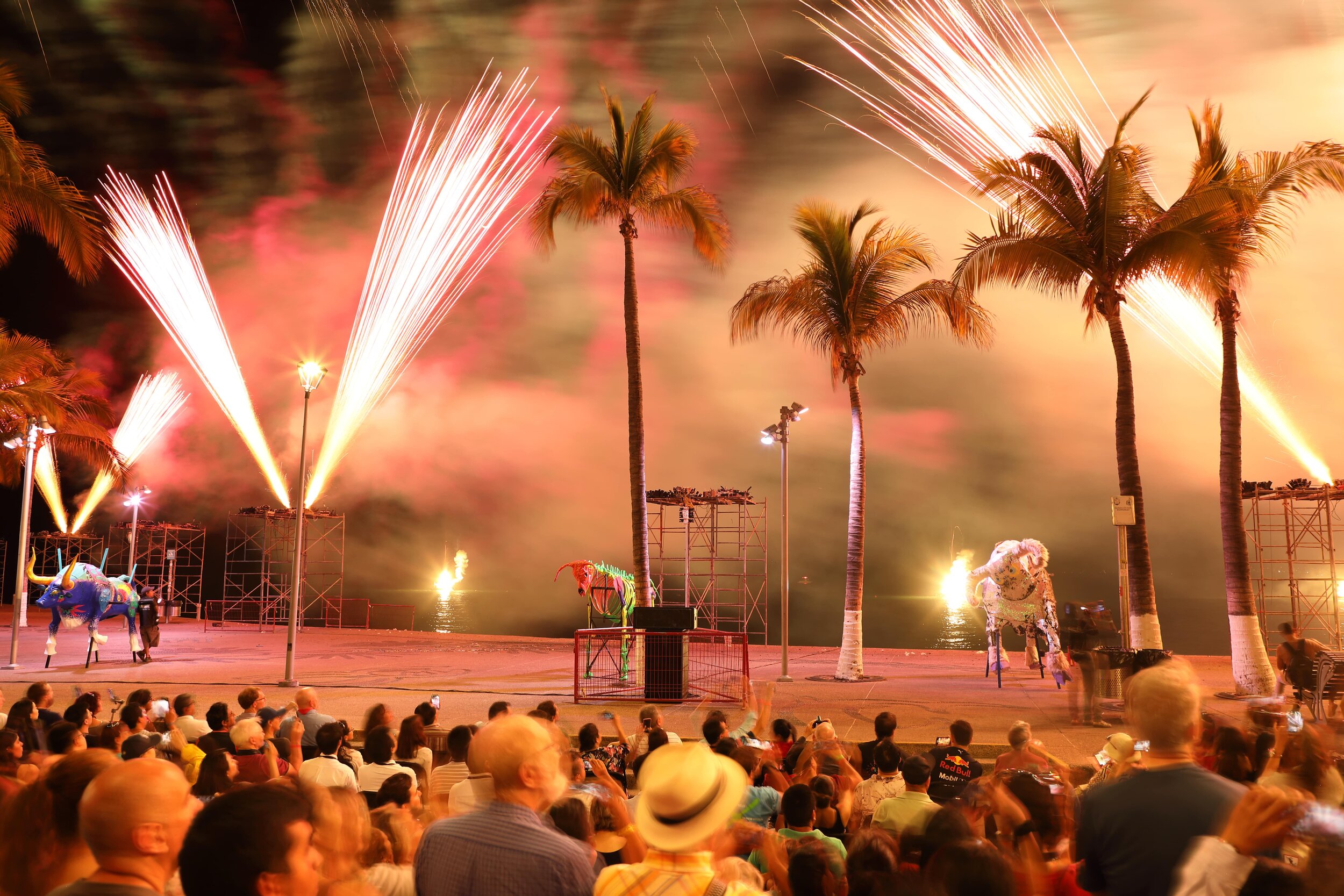The 2019 International Fireworks Symposium & British Firework Competitions
This article first appeared in Fireworks Magazine Spring 20202
Last time I wrote to you I was flying high above the USA on my way down to the International Symposium on Fireworks in Mexico, to present my paper on UK fireworks legislation. Those who are members of the Institute of Explosives Engineers can read that paper in the December 2019 issue of the ‘Explosives Engineering’ bi-monthly members publication. I travelled down with my Star Fireworks business partner Sean and it was something we were both really looking forward to. It wasn’t just the weather and the tequila that appealed - the Mexicans are known for some really outstanding fireworks including their quite incredible castillo fireworks.
Mexico was lovely. It was hot and sunny every day and each day pretty much ran the same format. Get up, breakfast, down to the Symposium to start at 8.30am, lunch, more Symposium, finished at 4.30pm and then pool bar by 5pm! The Corona and pina coladas went down very well. Then of course, after the pool it was time for food and then fireworks. The Symposium was held on the beautiful west coast of Mexico in a town called Puerto Vallarta. For the fireworks we jumped on a coach and travelled downtown to the local square. The shows every night were quite incredible and will be forever etched on my mind. A good range of material was shot from barges and pontoons in the bay, but it was the land based devices that really stood out for me, including the day light fireworks which nearly landed on us - a huge big spinning girondola type device that was several feet high and had quite some structure to it, which landed yards away in amongst the audience! Fortunately a very welcome occurrence when your crowd is made up of firework guests from around the world.
We partied, we paraded and we got a lot of sun at a superb location. If you’ve not been to a Symposium, there are multiple elements which include the day time presentations, an extensive trade show with the widest array of firing systems, pyrotechnics and the latest technology, then there are the fireworks on many of the nights and a gala dinner. Malta is next from 11th to 16th October 2020. I saw someone post online recently that it’s the rainy season then, but I’ll just point it is at home as well and Malta will be considerably warmer and welcoming with it’s array of fireworks. It’s just a shame it’s so close to Guy Fawkes, but there you go, you all have plenty of time to start planning ahead!
Congratulations to Distant Thunder fireworks who won the 2019 British Musical Fireworks Championship in Southport. I went along with a work colleague and we had one of those drives from down south that seemed to take forever. Road works, rain, wind and we eventually arrived at the firing site quite fatigued from the journey, just moments after they announced the fireworks that night (the first night) were cancelled due to strong winds. Adjudicator Chris Pearce from Jubilee Fireworks has had some pretty big decisions to make in the past and 2019 was no different. Strong winds meant that sparks would fly towards the audience, so it was a no go and de-rig for the teams that night. I’ve been there and know how it feels, I remember the solidarity between us and Fantastic Fireworks, helped along by the odd shared beer or two when we had to de-rig both our shows many years ago!
The standard at Southport is really very high now, but equally, it does seem to have now taken over from Plymouth as THE competition to take part in. The problems that Plymouth experiences with a very limited spread of teams putting their names in the hat don’t seem to exist in Southport. The down to earth and welcoming nature of Chris and Sarah Townley from Sefton Council are just the start of what is a really good experience if you’re a competitor. It’s fun, it’s nice, it’s a trip away and all of the shows are usually outstanding. A quick re-jig of the firing order saw four teams on the Saturday night and an extra show on the Sunday. One of the great things about Southport in my view is the quality of judging. Instead of distinguished and retired servicemen and defence explosives manufacturing staff acting as the professional judges, they have people who have a firm grounding in professional fireworks. Tony Cardell is a very safe and steady pair of hands, who will make anyone that had a bit of a disaster feel good about their show afterwards, likewise Bill Davis has a history as long as your arm expertly judging professional shows like this. For many years Wilf Scott was on the panel, and sadly after he passed away earlier this year his role was left vacant, and I’m pleased that it has been filled by Andy Wiggins, whose glittering array of achievements with fireworks in this country and around the world speak for themselves. Southport owes a deal of gratitude to having such a brilliant panel on the competition and they rightly recognised the input that Wilf has given, even in ill health, to be there and fairly judge the shows without favour or ill-will. That recognition came in the form of a fantastic fireworks display that concluded the Sunday evening’s entertainment.
The organisers of The British Fireworks Championship in Plymouth have undertaken a large industry-wide survey of display companies asking them about what they felt about particular aspects of the competition. Respondees seemed to be high - question 1 has 70 responses for example. Notable responses included ‘TESA suggested they they should seek to develop arrangements with other events to provide the winners each year with the option of doing other commercial display around the UK’ - to which 75.4% agreed. This sounds really good for winners, I just hope that it does materialise, unlike the similar offer a few years ago to seek international competitions for the winner to get a fast-pass directly into. Over 90% of responders said they would prefer more space for their displays and the competition to be spread over three days. A huge 98% said that they felt that the site security, toilets, barriers were OK but there was a lack of catering for the teams in the evening and the roads needs to be swept better between nights. Another 74% of responders felt that the adjudication should be independent of the BPA and that a different adjudicator should be appointed, and 81% felt that there should be judging from within the fireworks industry.
Overall it was great to see that so many people engaged with the survey and are trying to support TESA’s efforts to make changes. There was some disquiet that some companies were not invited to a meeting held by TESA prior to the publication of the survey, and judging by emails received not all people received the results (and perhaps the survey too). This is a big event that has become really bogged down in clutter and become ‘difficult’ for teams to want to enter. TIme will tell whether this is enough to save the competition. I hope it is, I used to love it, but after our own bad experience it doesn’t carry the same weight within the minds of our firers any more in my company. They no longer share that buzz about Plymouth. Good luck Jim and Kevin at TESA in turning the ship around, I really hope you are successful. It would be great to get Plymouth back to what it used to be!
Finally, China. At the time of writing it’s just after Guy Fawkes and Christmas Lights period and we’ve just heard of changes in China linked to 6, 7 and I’m told 8 inch shells as well. As I understand it, the Chinese have discovered that their 6 inch shells will not pass some UN Series 6 tests as 1.3G, and in fact, they will come out always as 1.1. This has caused concern amongst the China authorities who have said that even though 6 and 7 inch shells are 1.3 under the UN default classification scheme, because they know they are actually 1.1 they need to treat them that way. Fortunately it would seem at the time of going to press that there is a solution in the form of mitigatory packaging, much the same as the caged rockets we see now. However, this solutions is in the form of a denser style of cardboard separators in cartons that keep the shells from being in such close and intimate contact when shipped as they were before. My belief is the Chinese have tested this and found that they can get a 1.3 response in tests. I take my hat off to China for all this, because although it perhaps causes problems or more expense, they took the initiative here and they led the way, and that I suggest has in the past been highly unusual and it’s brilliant to see the worlds’ firework maker leading the way here.





